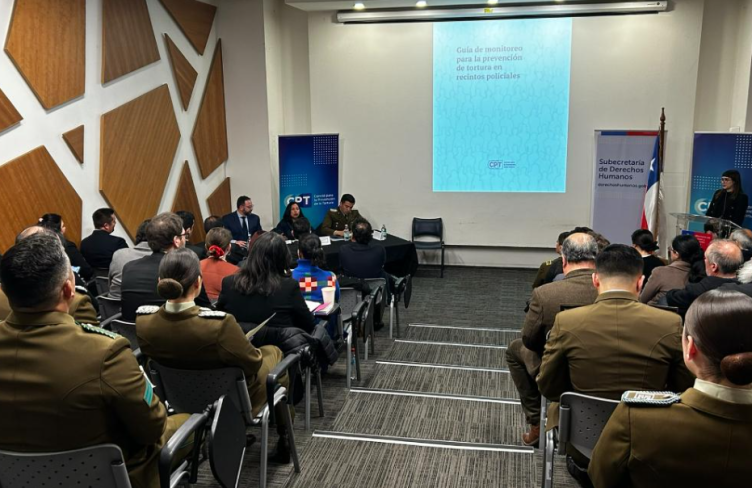
Earlier this year, the national mechanism to prevent torture became a reality in Chile, after many years of tireless and sustained advocacy at the national and international level.
Preventing torture and ill-treatment is about being persistent and working together towards changes in policy, law and practices. It took 11 long years for Chile to designate its National Human Rights Institute as National Preventive Mechanism (NPM) by law in April 2019, since the country ratified the Optional Protocol to the UN Convention against Torture (OPCAT) in 2008. Throughout this long period, the APT has been actively and tirelessly advocating and providing technical support for the NPM to become a reality, engaging with a variety of actors, including national authorities and the NHRI.
Following the NPM establishment by law in 2019, the APT has assisted the NHRI in the definition of the profile and skills of the NPM members and staff, sharing recommendations and good practices based on APT’s expertise and comparative experience from other countries.
Since April this year, following the appointment of the first NPM experts through a public selection process and the recruitment of the first staff, the APT has been in regular contact with the newly created Committee for the Prevention of Torture to assist in the implementation of its torture prevention mandate.
The first months of an NPM existence are crucial for laying the foundations of the institution. They also pose a number of challenges, and more so in the current context of COVID-19 pandemic. In just a few months, the newly established NPM has made significant progress in setting-up its institution, practically defining its mandate and how to relate to the NHRI, other state bodies and civil society.
Over a two-month period from September to November 2020, the APT carried out an online training programme with all the NPM members and staff, designed and organised in close collaboration with the NPM. The training aimed at accompanying the NPM in its establishment phase, by strengthening its understanding of the preventive approach and its capacity to monitor places of deprivation of liberty. It was also an opportunity to discuss and exchange about the NPM institutional framework to assist in the process of setting priorities and strategically organise the NPM initial work.
The APT held a series of online interactive discussions with NPM members and staff, providing guidance and sharing practical examples on a number of issues included in our new online NPM Toolkit, ranging from governance and planning to dialogue with the authorities and monitoring places of deprivation of liberty. One session was also entirely dedicated to monitoring places of deprivation of liberty in times of COVID-19. The APT is committed to continue supporting the Chilean NPM in the effective implementation of its preventive mandate.
The law 21.154 designating the NHRI as NPM was adopted in January 2019 and entered into force in April 2019. The NHRI established a new and autonomous Committee for the Prevention of Torture, attached to the NHRI, to perform the NPM mandate. The NPM is operational since May 2020, composed of seven experts selected through public competition and in a gradual manner. The first 4 experts were appointed in April 2020 and the remaining ones will be selected in the first quarter of 2021. The Committee also comprises a Secretary and staff.
For more information on:
- Our work in Chile, please click here
- Chile’s implementation of the OPCAT, please access our OPCAT Database
The APT supports the NPM in Chile thanks to the support of the OPCAT Special Fund.



